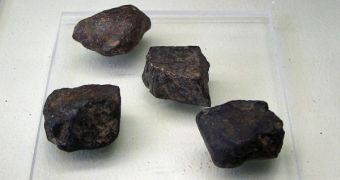In the race towards creating more eco-friendly materials and devices, there are several chemicals that do the job as well as established ones, but with less of a carbon footprint. Such is the case with rare earth metals, which are minerals from which a variety of compounds necessary for constructing hybrid cars and wind turbines is extracted. China is currently the number-one supplier of such minerals, but Colorado, US-based Molycorp Minerals LLC is now looking for alternatives to break off from the dependency, Reuters informs.
The company recently announced that it would reopen its long-idle Mountain Pass, California-based mine, which still had thousands of tons of the stuff buried under sterile rock. The 55-acre (22.3-hectare) exploitation is located in the state's high desert, and brings a ray of hope to “green” companies, in terms of getting their raw materials cheaper and faster. The reserves identified at the mine have the largest concentration of rare earth metals in the world, so resuming operations there makes sense.
The company has already signed an agreement with Rochester, New York-based enterprise Arnold Magnetic Technologies Corp. for producing permanent magnets solely out of the supplies extracted from the Mountain Pass site. “The world has been looking for an alternative to these rare-earth permanent magnets for over 20 years, and one has not been found. What Molycorp is proposing as a business strategy is to fill that supply chain and go all the way from mining to magnets,” Mark Smith, the chief executive at Molycorp, says.
The project has all the chances to succeed, considering that it is backed by important equity investors such as Goldman Sachs, which have poured hundreds of millions of dollars into converting the idle mine into a facility that would continuously fuel the expanding “green” boom. Hybrid vehicles and wind turbines use motors that contain very powerful and lightweight magnets at this point, most of which are made from minerals extracted from bastnasite. This is one of the most abundant sources for the sought-after mineral cerium.
Talking about the rare earth-metal shortage currently affecting the country, US Geological Survey (USGS) expert James Hedrick adds that, “Most companies that were in the business stopped producing because it wasn't profitable anymore.” However, the Chinese managed to find a way to make it more profitable for them. They now control 97 percent of the world's market, and sold 139,000 tonnes of refined material last year alone. By 2015, the Asian nation's production level is expected to increase to as much as 160,000 tonnes.

 14 DAY TRIAL //
14 DAY TRIAL //